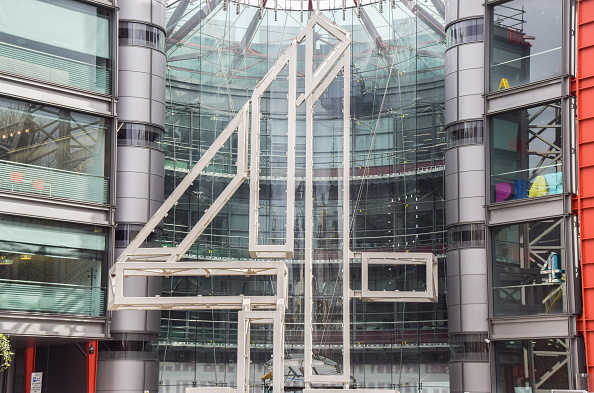Channel 4 privatisation still on track despite political turbulence

Channel 4’s privatisation is still on track, despite reports that Boris Johnson’s resignation may have scuppered the broadcaster’s £2bn sale.
City A.M. understands that plans are proceeding at both government and corporate level, with JP Morgan advising on the workings of the deal.
There had been speculation that the government may u-turn on the project following public backlash, as well as the precarious position of Nadine Dorries as Culture Secretary.
One Whitehall source told The Telegraph: “The debate is back on the table and when a new Secretary of State comes in, they will want to review everything… Everything is in a holding pattern at the moment.”
Channel 4 declined to comment on initial reports, but a spokesperson for DCMS said: “We have been clear that a change of ownership is necessary to give the broadcaster the tools to innovate and grow at pace in a rapidly changing media landscape, without the constraints of public ownership. We will introduce the media bill which will allow the change of ownership in due course.”
The bid process, which could attract ITV and Paramount, is expected in 2023.
Dorries on a mission
Nadine Dorries pushed back against critics of Channel 4 privatisation last month, stating that it is about saving the broadcaster rather than destroying it.
Speaking during a phone-in session on LBC radio, the Culture Secretary defended accusations that the government pushed forward with privatisation because of the broadcaster’s contrasting politics.
“It’s not ideological”, Dorries told listeners, adding: “I have said that Channel 4 sometimes doesn’t do itself any favours, but I couldn’t care less what they report on the news”.
She admitted that she “quite liked” C4 shows, even citing Gogglebox and First Dates as some her favourite to watch.
The minister focused on the investment opportunities that a private Channel 4 would bring.
“The sale of Channel 4 is about saving Channel 4”, she said. “And the reason why we’re selling Channel 4 is because it’s state-owned and Channel 4 wants to raise funding in order to make more of that great content”, Dorries explained.
She said the margins in the linear advertising space were getting thinner and thinner, leaving C4 at the mercy at some of the bigger players dominating and entering the market.
Dorries added that the government ultimately needed to “set Channel 4 free” to allow it to be a bigger and better.
She also said that although the broadcaster was in a good financial position at the moment, this may not always be the case; Dorries raised concerns that it would be down to the government to lend it money or bail it out of any financial woes.
Following Dorries’ comments, a Channel 4 spokesperson told City A.M. : “Channel 4 does not have any debt and has £270m in cash and sufficient funds for investment.
Channel 4 also put forward a proposal that would have enabled it to access private-sector capital that would not sit on the public balance sheet to drive new investment in the creative economy.”
The suggestions put forward by chief exec Alex Mahon included heavy investment in talented young people, regional stories, as well as emphasising the importance of home-grown shows.
They would have also contributed to over £11bn of gross value add to the UK, and supported more than 13,000 jobs.
The suggestions put forward by chief exec Alex Mahon included heavy investment in talented young people, regional stories, as well as emphasising the importance of home-grown shows.
They would have also contributed to over £11bn of gross value add to the UK, and supported more than 13,000 jobs.